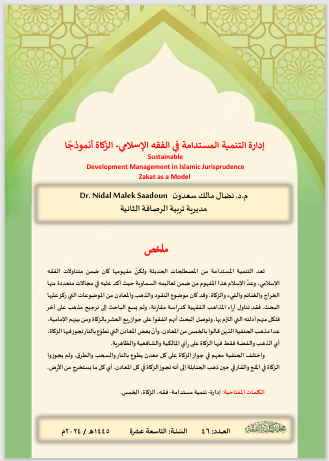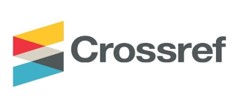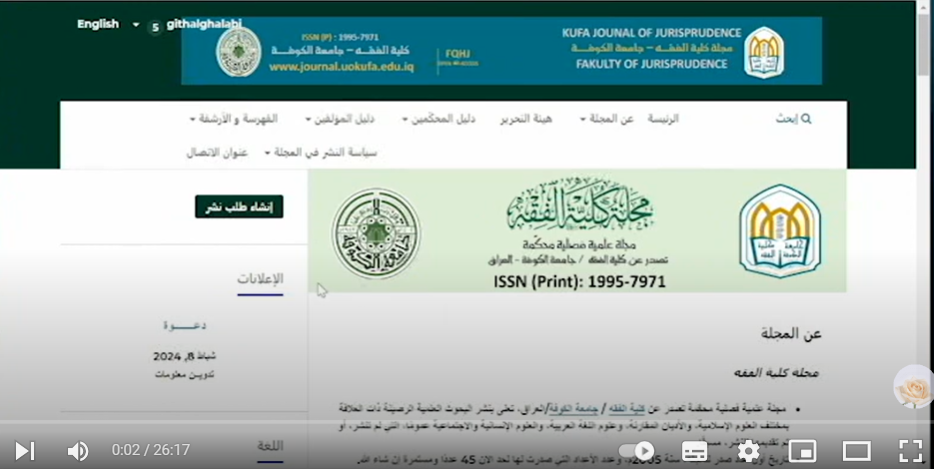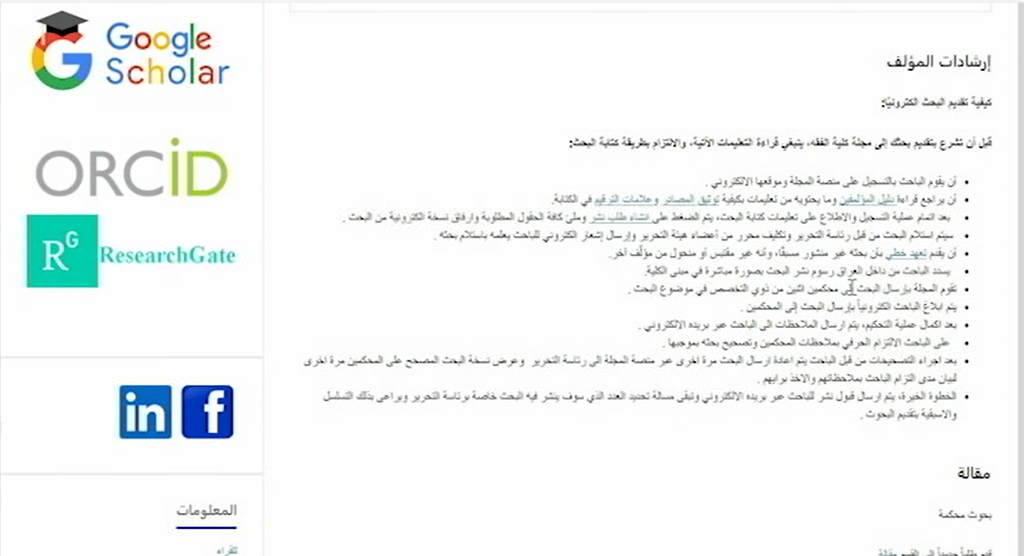Sustainable Development Management in Islamic Jurisprudence Zakat as a Model
DOI:
https://doi.org/10.36324/fqhj.v1i46.15805Keywords:
Management, sustainable development, jurisprudence, zakat, khumsAbstract
Sustainable development is one of the modern terms, but its concept was within the reach of Islamic jurisprudence, and Islam considered this concept among its heavenly teachings, as it emphasized it in various fields, including the tax, spoils, money, and zakat.
Money, gold, and metals were among the topics that the research focused on. It dealt with the views of the jurisprudence schools as a comparative study, and the researcher did not seek to favor one doctrine over another, as each of them has evidence that he adhered to.
The research found that they agreed on the permissibility of one-fourth of a tenth of zakat, including the Imamiyyah, except for the Hanafi school of thought which espouses one-fifth of minerals. And that some minerals that are voluntarily ignited by fire are subject to zakat, i.e. gold and silver only have zakat on them according to the opinion of the Malikis, Shafi’is, and Dhahiriyya.
The Hanafis differed from others which is regarding the permissibility of zakat on every mineral that is Annealing by heating or ductility. zakat not allowed on salt and tar, while the Hanbalis said that zakat is permissible on all minerals are extracted from the earth.
Downloads

Downloads
Published
How to Cite
Issue
Section
Categories
License
Copyright (c) 2024 Journal of the Faculty of Jurisprudence

This work is licensed under a Creative Commons Attribution 4.0 International License.











